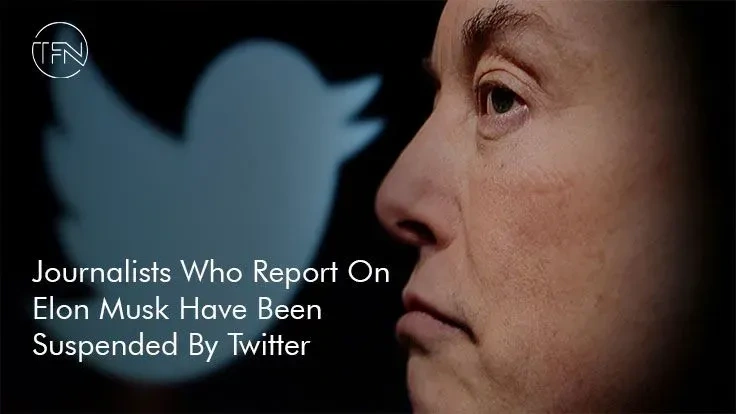
The social media platform abruptly shut off the accounts of more than a half-dozen American journalists who had written stories that were critical of Twitter's new owner, Elon Musk.
The prohibitions were imposed without prior notice late on Thursday night. This happened immediately after Musk claimed that reporters were endangering the safety of his family by "doxing" him or disclosing details about his locations that most people are unaware of.
Among the journalists who have been suspended are reporters from publications including The New York Times, The Washington Post, CNN, The Intercept, and Voice of America.
"Criticizing me all day is fine, but doing my real-time locations and causing harm to my family is not," Musk wrote on Twitter. He said, "The same doxxing restrictions apply to everyone else, and the same doxxing laws apply to journalists."
Later, Musk said that journalists had broken the network's rules of service by disseminating information that was "basically assassination coordinates."
Private services like FlightAware and Flightradar24 often post the data that the Federal Aviation Administration of the United States gathers regarding monitoring flights online.
Several of the journalists who were banned had written about Twitter's ban on flight-tracking accounts and Musk's plane, even though it wasn't clear what the exact reason for each ban was. These journalists include Donnie O'Sullivan of CNN and Drew Harwell of the Washington Post. These two journalists had each received a suspension.
In an interview with CNN after his suspension, O'Sullivan said that he had not told anyone else where Musk's jet was at any given time.
All of the journalists who have been suspended, including Micah Lee of The Intercept and Ryan Mac of the New York Times, have written pieces that are broadly critical of Twitter and Musk.
Twitter's head of Trust & Safety, Ella Irwin, told NPR that the company will terminate "any accounts that violate privacy policies and endanger other users." Irwin will not, however, elaborate on specific decisions made about certain users.
The New York Times, the Washington Post, CNN, and other media organizations, as well as supporters of press freedom, expressed concern over the suspension.
The Washington Post's editor-in-chief, Sally Buzbee, claims that Elon Musk's assertion that he wants to manage Twitter as a platform that fosters free expression is "undermined" by Andrew Harwell's suspension.
“Musk has shown that he is unfit for the position of running a significant social media platform,” according to Jameel Jaffer, the executive director of the press freedom advocacy group Knight First Amendment Institute.
“Is it OK for journalists to be present now that Musk has made it clear that they are there at his discretion and that he reserves the right to expel them if they cross his arbitrary boundaries?” Jaffer posted his ideas on Twitter.
Since Musk acquired Twitter for $44 billion in October, the company's personnel has been drastically reduced, its moderation practices have undergone a thorough overhaul, and accounts that had been banned, including those of former President Donald Trump, have been reinstated.

